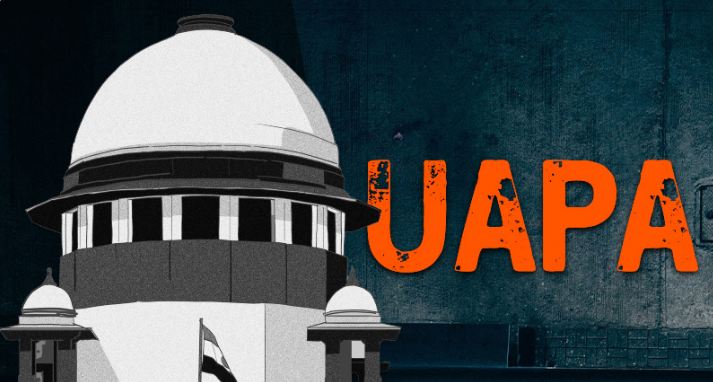India Anti-Terror Law: Court reinstates the principle of “guilt by association”
The court stated that the aim and object of the enactment of UAPA is also to provide for more effective prevention of certain unlawful activities.
The Supreme Court of India restored the doctrine of “guilt by association” in criminal jurisprudence on Friday, overturning a number of its 2011 decisions and declaring that mere membership in a banned organisation will be a crime under the country’s anti-terror law — the Unlawful Activities (Prevention) Act (UAPA), 1967.
The constitutionality and logic of Section 10(a)(i), which deems continuing participation in a prohibited organisation a criminal punishable by a prison sentence of up to two years, were upheld by a three-judge panel led by justice MR Shah.
“It is noted that the UAPA’s mission and purpose is to provide for more efficient prevention of specific illegal behaviours. According to the bench, which also included justices CT Ravikumar and Sanjay Karol, “punishing such a person who is continued as a member of such unlawful association which is declared unlawful due to unlawful activities can be said to be in furtherance of providing for effective prevention of the unlawful activities.
In holding that mere membership in a prohibited organisation would not constitute criminal offence unless a person used violence, incited others to use violence, or engaged in any other overt act intended to disturb public peace, it was determined that the three 2011 verdicts were “not a good law.”
Noting that there was no legal challenge to the statute and no opportunity for the Union government to plead its case before the judgement, the Supreme Court’s two-judge benches erred in reading down the UAPA provision in specific criminal cases on bail.
“It is true that the court has the final say in how the law or a specific statute should be interpreted. The authority of the courts is not the issue, though. Is it possible to carry it out without consulting the Union of India? The court emphasised in its 144-page decision that when any provision of parliamentary legislation is read down without the Union of India, it is likely to have severe negative effects on the State’s interests.
In 2011, the Supreme Court ruled in three different cases involving allegations under the UAPA and the since-abolished Terrorist and Disruptive Activities (Prevention) Act (TADA) that a person’s mere membership in a banned organisation does not subject them to criminal liability unless there is evidence of a specific intent to further the organization’s illegal goals or some overt unlawful acts.
The US Supreme Court decisions that flatly rejected the concept of “guilt by association” and emphasised the right to free speech were widely cited by the apex court in support of its position.The Union government requested a review of the 2011 decisions, claiming that not only was it essential for the two-judge benches to consult the Centre when hearing these cases, but that the reading down of the TADA and the UAPA provision also had an impact on the prosecution of cases for unlawful association with prohibited organisations. For the Center, Tushar Mehta, the solicitor general, appeared.
In granting the Centre’s request on Friday, the three-judge bench disagreed with earlier opinions, holding that Indian courts must take into account the distinctive nature of the laws in each country before adopting their rulings.
The top court stated that even if there had been a challenge to the constitutionality of Section 10(a)(i) of the UAPA, there was no chance of the court reading down the provision in 2011, especially in light of the UAPA’s legislative background and goal.
The court noted that a particular association is only declared unlawful after the central government is satisfied that such association is engaging in unlawful activity and that such activity is against the sovereignty and integrity of India. The court stated that the aim and object of the enactment of UAPA is also to provide for more effective prevention of certain unlawful activities.
Furthermore, it highlighted, “a person who is a member of such unlawful association cannot assert that still he may be connected with and/or continue to be a member of such unlawful association.”
The court further dismissed a challenge to the UAPA clause based on the potential for abuse, emphasising that the mere possibility of abuse cannot be a basis for or a pertinent factor for evaluating the legality of a provision. “According to the established legal principle, any action that results from the abuse or misuse of any legislation is liable to challenge. Yet, legislation that is otherwise constitutionally legitimate cannot be deemed illegal based on the likelihood of abuse or misuse, it said.
Justice Karol noted in a separate but concurring opinion that it is not political organisation membership, free speech, or government criticism that is being sought to be outlawed in India.
In a separate but concurring opinion, Judge Karol pointed out that what is being attempted to be made illegal in India is not belonging to political organisations, exercising one’s right to free speech, or criticising the government.



